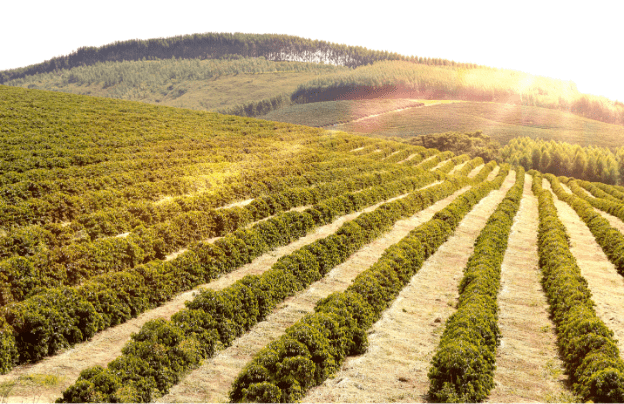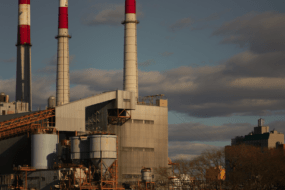- Home
- Trade News
- Brazil sustainable agriculture ...

The world is increasingly interconnected, and what happens in one part of the globe can have ripple effects across the planet. This is especially true regarding the economy, as businesses and countries increasingly rely on one another for trade.
This interconnectedness means that sustainable practices in one part of the world can positively impact the sustainability of businesses and economies elsewhere.
Sustainable agriculture is an integral part of this equation.
Sustainable agriculture and its significance in trade and business
Sustainable agriculture is the practice of producing food, fibre, or other plant or animal products in a way that protects the environment, public health, human communities, and animal welfare.
In other words, sustainable agriculture produces food and other products in a manner that is environmentally friendly, socially responsible, and economically viable.
There are many reasons why sustainable agriculture is essential, not just for the environment but also for businesses and the economy.
For one, sustainable agriculture can help mitigate climate change’s effects. Agriculture is a significant contributor to greenhouse gas emissions, so sustainable practices can help to reduce these emissions and slow the pace of climate change.
Sustainable agriculture is also crucial for food security. With the world population projected to reach 9.7 billion by 2050, there is a growing need for food production to be more efficient and sustainable.
Sustainable agriculture can help meet this demand in several ways, including reducing wastage, increasing yields, and improving water and soil conservation.
In addition, sustainable agriculture is a vital sector of the economy, accounting for 4% of the global gross domestic product (GDP). In developing countries, the sector can be even more important, accounting for 25% or more of the GDP.
Furthermore, over the past two decades, trade in agro-food products has increased significantly, reaching over 7% in real terms yearly between 2001 and 2019. Agro-food trade is becoming “global,” not merely growing.
Employment in agriculture
Agriculture provides not only food and other raw materials, but also employment and income for a large portion of the world’s population. In 2019, around 3.3 billion people worldwide, or 27% of the workforce, were working in agriculture.
Sustainable practices can also help spur economic growth while reducing agriculture’s impact on the environment. For example, sustainable agriculture can help reduce deforestation, which can negatively impact local economies.
Of course, sustainable agriculture is not without its challenges. One of the biggest challenges is the high cost of some sustainable practices. For example, organic agriculture can be more expensive than conventional agriculture, as it often requires more labour-intensive methods. In addition, not all consumers are aware of or interested in the issue of sustainable agriculture.
However, despite these challenges, sustainable agriculture is an important part of the solution to the global food system.
Brazil’s sustainable agriculture and its lack of global recognition
In the context of the recent Global Agribusiness Forum held in Brazil, speakers insisted that Brazilian agriculture was sustainable, even though many of its innovations and practices were not widely recognised or known outside the country.
Bruno Barcelos Lucchi, technical director for the Brazilian growers’ association, CNA (Confederation of Agriculture and Livestock), claimed that the country’s farmers produce and preserve crops in a way that is unique to only a few countries in the world.
Christian Lohbauer, president of industry association CropLife Brasil, agrees that Brazilian agriculture is already sustainable.
“We work with sustainability. There are problems with our agriculture. We have illegal mining and logging, some are not employing GAP,” he acknowledged, “but our agriculture business is built around sustainability, with no-till planting, carbon capture, using animal waste. But the world has not received news of this in an organised manner.”
Vinicius Biagi, president of the social organisation Instituto Nova Era, maintained how agriculture is about sustainability, stating, “It produces and conserves, or it is not agriculture, it is mining”.
How so few people worldwide were aware of Brazilian sustainability techniques and methodologies was an issue raised by Mr Lucchi. In point of fact, Brazilian agriculture is ahead of other major food producers in terms of sustainability.
According to Mr Lucchi, only a small percentage of land is dedicated to agriculture in Brazil (30%), compared to 17-18% in China and the US, and 56% and 66% in Germany and the Netherlands, respectively. In addition, a significant proportion of preserved vegetation land in Brazil is maintained on farms (almost one-third).
Furthermore, the CNA director described how Brazilian farmers have moved to less populated and developed regions of the nation in order to upgrade them using agricultural technologies. He also claimed that Brazil has a lot of potential for increasing water usage, as the country already utilises 17% for agriculture, which he said was a sign of a robust industry.
Promotion of sustainable agriculture
Brazil’s low-carbon agricultural program, known as ABC+, has achieved impressive results in reducing emissions. As shared by Mr Lucchi, the program surpassed its carbon reduction targets by 15% in 2018. This is a significant accomplishment demonstrating Brazil’s potential to lead the way in developing sustainable agriculture practices.
“We’re in the second phase of ABC+ programme with higher goals. We have a history of sustainable production. But how do we convey an image of having sustainable agriculture, especially abroad?” Mr Lucchi stated.
He puts up three themes:
- enhancing current institutions,
- developing new restrictions, and
- broadening possible alternatives for legitimate economic activity in places like the Amazon.
Moving forward, Mr Lucchi warned of the various attacks on Brazilian agriculture that are occurring overseas. He spoke against the idea that the Amazon forest is the lungs of the world, saying instead that the seas play a more vital role. “I believe it is the seas. We have 8,000 km of coasts. Fishing with nets is more harmful than deforestation.”
He then went on to present his organisation’s work in regenerating forested areas and claimed that deforestation is not always a problem, but only if it is about restoring and reoccupying areas.
Mr Lucchi noted that illegal logging was damaging Brazil’s reputation. He pointed out that “0.9% of farms” were responsible for some deforestation and called for more stringent penalties for those who break the rules.
The CNA director proposed that monitoring and restrictions for illegal logging should go beyond simple command and control and incorporate issues of regional development.
He intends to improve firefighting as a deforestation control measure. He contrasts the lack of resources in the US to the usage of helicopters to fight fires and even to remove tractors and other large pieces of equipment from disaster zones.
“If those in isolated northern regions do not have legal ways of earning income, they will find other ways to survive. That could be illegal mining, deforestation, illegal livestock raising and drug trafficking.” Thus, examining economic motivations is another factor.
Mr Lucchi presses for compensation programs for environmental service programs like forest preservation, so that Amazon residents can earn legitimate wages.
When they get legal status from state and federal governments, growers can embrace public policies, discover technology to enhance their operations, and take part in official technical support programs.
Moreover, Mr Lucchi put forward that money may be raised through government-backed finance, such as the Amazon Fund, a mechanism established to generate donations for non-reimbursable expenditures in efforts to prevent, monitor, and battle deforestation.
Agriculture in Singapore
Singapore is highly dependent on food imports to meet the needs of its heavily urbanised population.
It has minimal domestic agricultural production, so most of the food consumed is imported from other countries. This makes the country vulnerable to changes in the global food market and disruptions to the supply of imported food.
However, this is not stopping Singapore from strengthening local food production and ensuring food security.
Ensuring and securing Singapore’s food supply
The Singapore Food Agency (SFA) has been working on initiatives to help improve the country’s food supply. The SFA strives to bolster local production in order to reach the national objective of “30 by 30”.
This refers to supporting the agriculture and food industry’s competence and potential to locally produce 30% of our nutritional requisites by 2030 in a sustainable manner, which presently stands at less than 10%.
Technology improvements will be critical in unlocking the agriculture and food industry’s potential to ‘produce more with less, in a sustainable way.
Along with raising local food production, the SFA is expanding internationally and varying the sources of its food imports. The country becomes less dependent on any one source for any one food item by diversifying its food sources.
Singapore is in an excellent position to use its network of importers to tap into alternate food supplies if any source is disrupted, ensuring that our food supply is steady.
In order to overcome resource and labour shortages and expand into new markets, SFA also assists Singaporean businesses in exporting urban food solutions to other nations.
After that, these businesses may benefit from economies of scale and export food all the way back to Singapore. In Australia, Brunei, Hong Kong, Thailand, and China, some local farmers have made forays. Altogether, these three strategies by the SFA are called the “food baskets”.
Conclusion
The world is changing. The way we produce and consume food is changing. The way we trade and transport food is changing. The way we think about food security is changing.
That is why sustainable agriculture is important now more than ever.
It is an approach to food production that takes into account the long-term impact of the decisions we make about how we grow and raise our food.
Sustainable agriculture is part of the solution to the global challenge of food security.
Food security is becoming increasingly important as the world’s population continues to grow. If you’re interested in learning more about food security, be sure to check out our article on its potential threats and solutions.
With TradeData.Pro’s data, you can get insights on raw materials trading, and predict the trend and impact of food security. The import-export and custom data will help you to make informed decisions if you’re in the food and agricultural industry.
TradeData.Pro offers users access to trade data, supplier information, and trend analysis. The platform can be used to research competitors, find new suppliers, and track trends in the global marketplace.
TradeData.Pro offers a free trial to interested users. If you would like to learn more about our products and services, please don’t hesitate to contact us. You can reach us by phone or email us at sales@cic-tp.com.
Vietnam has been the hottest industry lately, to stay updated on Vietnam, you can view all these information on Vietnam in here on our platform: https://data.cic-tp.com/asia-trade-data/vietnam-import-export-data
Find the exact product you are interested in here at https://tradedata.pro/trade-database-demo/
To find out more about accessing a new market, you can check out this article which shows you how to use Trade Data Pro to access Global Trade Markets: https://blog.tradedata.pro/say-hello-to-our-new-release-of-tradedata-pro/
The most trustable and reliable source for Trade Data.
Trade Data Pro was awarded with Singapore Quality Class in 2020 and Stevie Award Gold in 2021. Businesses need information to reveal trends, identify market opportunities, track competitors buyers and suppliers, and better understand supply chain potential.
Finding these critical data has traditionally been challenging. But this information do exist, but as part of government import and export filing requirement. The detailed shipment information which are within these filings constructions the core of the global trade.
Trade Data Pro has gathered and packaged these information as business intelligence. Our solution helps companies understand the flow of goods across borders and features the world’s largest searchable trade database. We do the heavy lifting for you by reviewing, standardising, and cleaning data, then delivering in an intuitive format.
Learn how TradeData.Pro works by watching the video below! View here on Youtube as well: https://youtu.be/QQ9wG-CesI8
Agriculture Brazil Business Economy Export Future Global Import International Trade Markets Opportunities Trade Data Pro Worldwide
Leave a Reply Cancel reply
Archives
- April 2024
- March 2024
- January 2024
- December 2023
- November 2023
- October 2023
- September 2023
- August 2023
- July 2023
- June 2023
- May 2023
- April 2023
- March 2023
- February 2023
- January 2023
- December 2022
- November 2022
- October 2022
- September 2022
- August 2022
- July 2022
- June 2022
- May 2022
- April 2022
- March 2022
- February 2022
- January 2021
Categories
Recent Post
Chinese Automotive Expansion into Mexico for the
- April 29, 2024
- 6 min read
Global Economic Landscape: 2024 Outlook
- April 22, 2024
- 11 min read
China-Brazil Trade Relationship in 2024
- April 15, 2024
- 11 min read
All Tags
Agriculture Automotive Brazil Business Business Opportunities Buyers China Coffee Commodities Crops Ecommerce Economic Economy Electronics Energy Environmental Europe Export Exports Future Garments Global Import India Industries International Trade Leads Leads Generation manufacturing Markets Opportunities Pharmaceuticals Prices Rice Russia Supplier Textiles Trade Trade Data Trade Data Pro Turkey Ukraine United States Vietnam Worldwide







3 replies on “Brazil sustainable agriculture vital for the future”
[…] and a top two producer of biodiesel. Government policy, robust local demand, and Brazil’s sizable agricultural and transportation sectors all contribute to the country’s biofuel […]
[…] Brazil’s future coffee export prospects remain positive. The country has implemented various initiatives to improve coffee production and increase yields, including investing in research and development, introducing new technology, and providing technical assistance to farmers. Furthermore, Brazil’s coffee industry has been working towards sustainability, promoting practises that conserve natural resources and protect the environment. Read more about Brazil’s sustainable agricultural development in this blog. […]
[…] schedules. Besides, if you are interested in other Brazilian agricultural information, click here to read […]